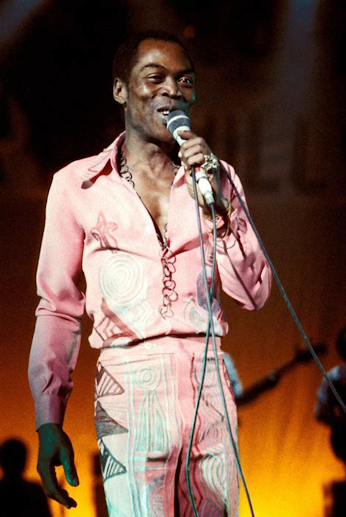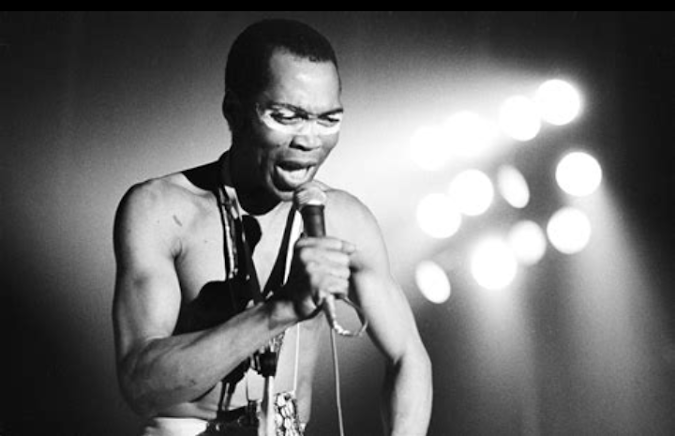Fela Aníkúlápó Kuti, born Olufela Olusegun Oludotun Ransome-Kuti on October 15, 1938, in Abeokuta, Nigeria, was a pioneering musician and outspoken political activist. He is celebrated as the principal innovator of Afrobeat, a genre that fuses traditional West African rhythms with American jazz and funk.
Raised in a politically active family, Fela's mother, Funmilayo Ransome-Kuti, was a prominent feminist and labor activist. This environment profoundly influenced his worldview and artistic direction. In 1958, Fela moved to London to study at the Trinity College of Music, where he formed the band Koola Lobitos, blending jazz and highlife music.
Upon returning to Nigeria in the 1960s, Fela developed Afrobeat, characterized by complex rhythms, extended instrumental solos, and socially conscious lyrics. His Lagos nightclub, the Afrika Shrine, became a hub for musical innovation and political discourse. Fela's fearless criticism of Nigeria's military regimes led to frequent arrests and harassment. Notably, his 1977 album "Zombie," satirizing the Nigerian military, provoked a violent raid on his commune, resulting in the death of his mother and the destruction of his property.
Despite relentless persecution, Fela remained undeterred, using his music as a platform for activism until his death on August 2, 1997. His legacy endures, influencing countless artists worldwide and inspiring the Broadway musical "Fela!" His sons, Femi and Seun Kuti, continue to uphold his musical and activist spirit, ensuring that Fela's revolutionary contributions to music and social justice are not forgotten.
Join the Conversation
What are your thoughts on Fela Kuti's impact on music and activism? Share your reflections in the comments below! If you found this post insightful, please like and share it with others who might appreciate Fela's legacy.








.webp)

.webp)

